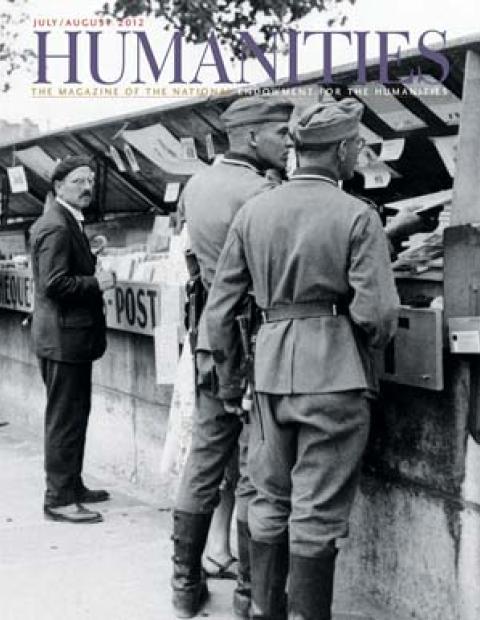Henry David Thoreau’s nineteenth-century observations of Concord’s flora are proving useful to scientists studying twenty-first-century climate change. Richard Primack, a biology professor at Boston University, reported in the February 2012 issue of BioScience that some “plants are flowering ten days earlier than they were in Thoreau’s time.”
Since 2003, Primack and his colleagues have been studying the phenology, presence, and abundance of species in Concord and comparing what they find with records kept by Thoreau, Alfred Hosmer, and others. With the help of the late Bradley Dean, an NEH grantee who worked on Thoreau’s notebooks, Primack was able to work with plant tables kept by Thoreau, who faithfully tracked the first flowering dates for more than five hundred species of wildflowers from 1851 to 1858. Hosmer ’s botany notebooks provided Primack with late-nineteenth-century flowering records for six hundred species, and flowering data for the early twentieth century came from pictures taken by the landscape photographer Herbert Wendell Gleason.
Phenology, the timing of seasonal events like flowering and leaf emergence, is especially sensitive to temperature. Thus, earlier flowering is one bellwether of climate change. Temperatures globally have increased 0.7° C over the past hundred years, says Primack. “Boston and Concord have warmed over 2° C since the time of Thoreau, with about two-thirds of this increase probably caused by the urban heat island effect,” the warming in cities that occurs when buildings and paved surfaces absorb heat during the day.
The scientists also showed that 27 percent of the species that Thoreau and others recorded are no longer present in Concord, a finding that “was somewhat surprising, considering that approximately 35 percent of Concord’s land area is protected.” For orchids alone, the change is dramatic. When Thoreau lived, there were twenty-one species, now there are seven.
In the journal Biological Conservation, Primack wrote that if Thoreau were alive today he would notice the changes in the Concord landscape. In his own time, Concord’s naturalist philosopher lamented the changes around him, writing in 1856, “I take infinite pains to know all the phenomena of the spring, for instance, thinking that I have here the entire poem, and then, to my chagrin, I learn that it is but an imperfect copy that I possess and have read, that my ancestors have torn out many of the first leaves and grandest passages, and mutilated it in many places. I should not like to think that some demigod had come before me and picked out some of the best stars. I wish to know an entire heaven and an entire earth.”

